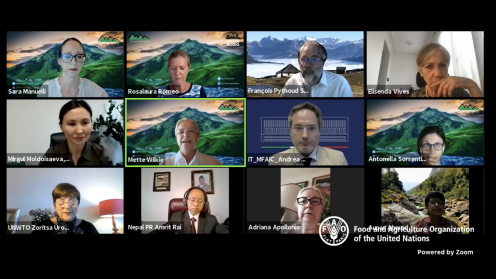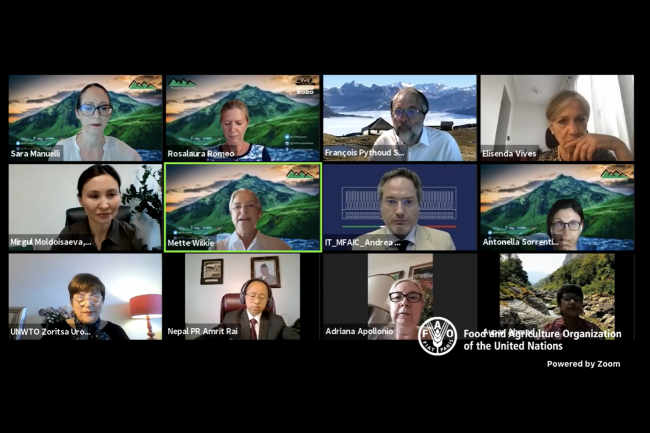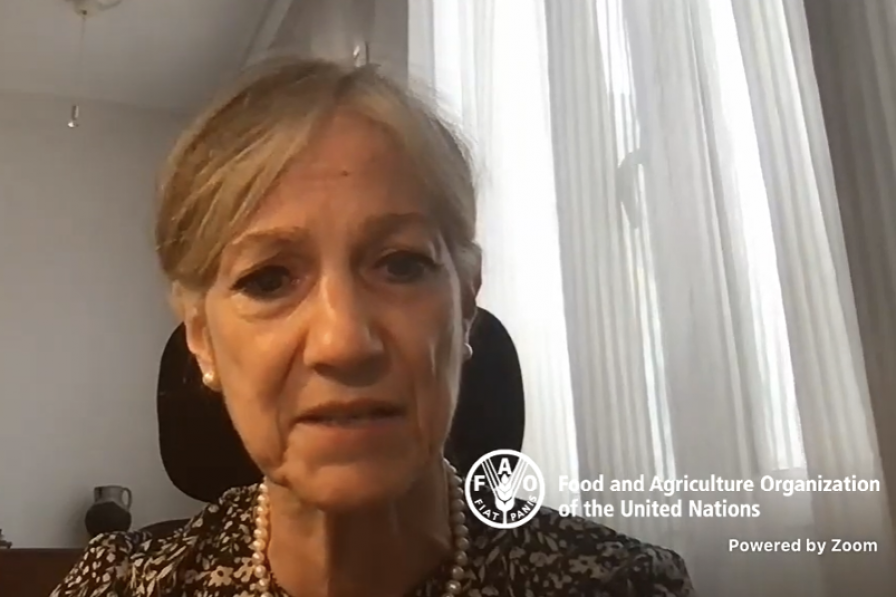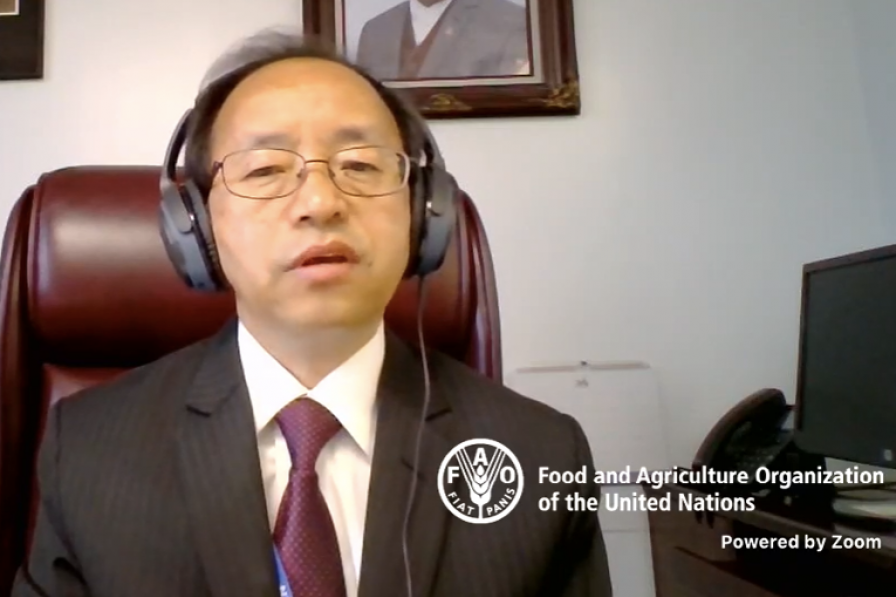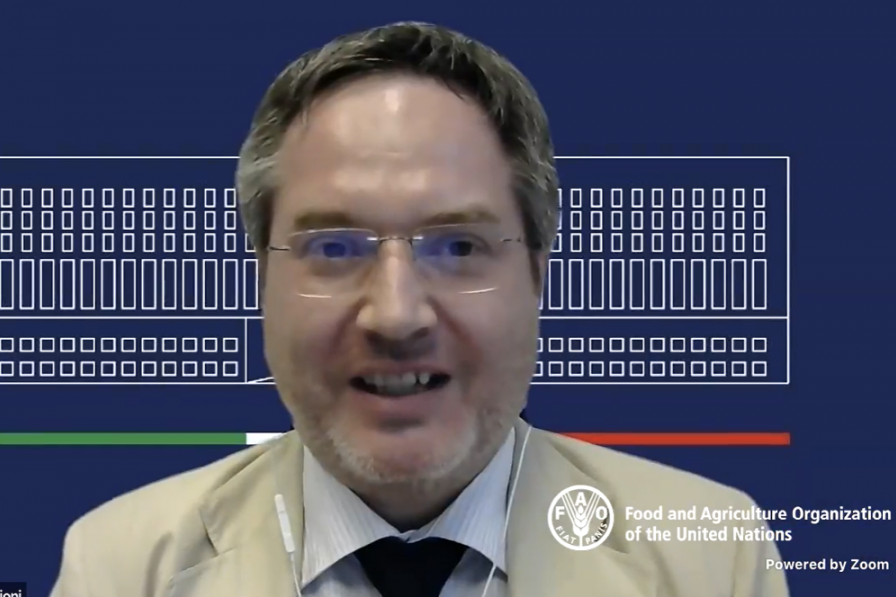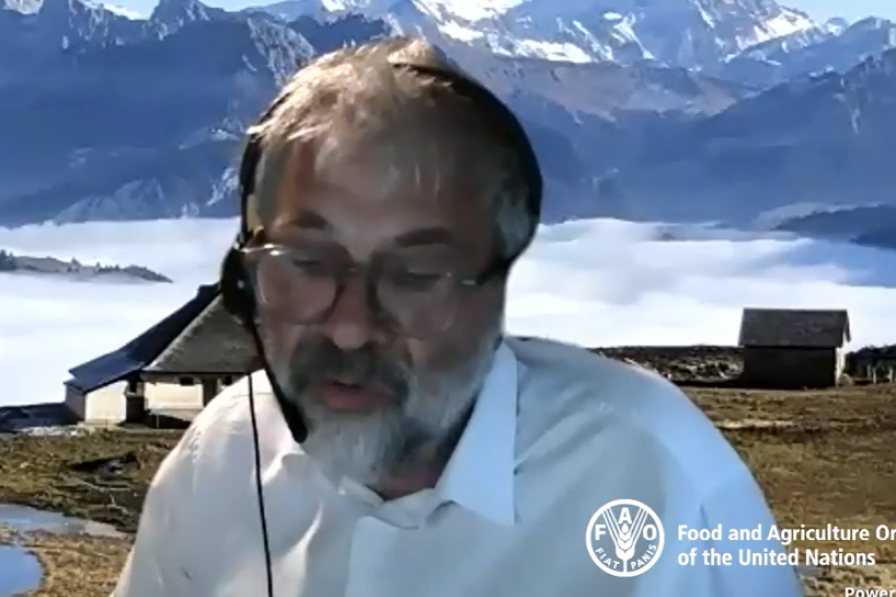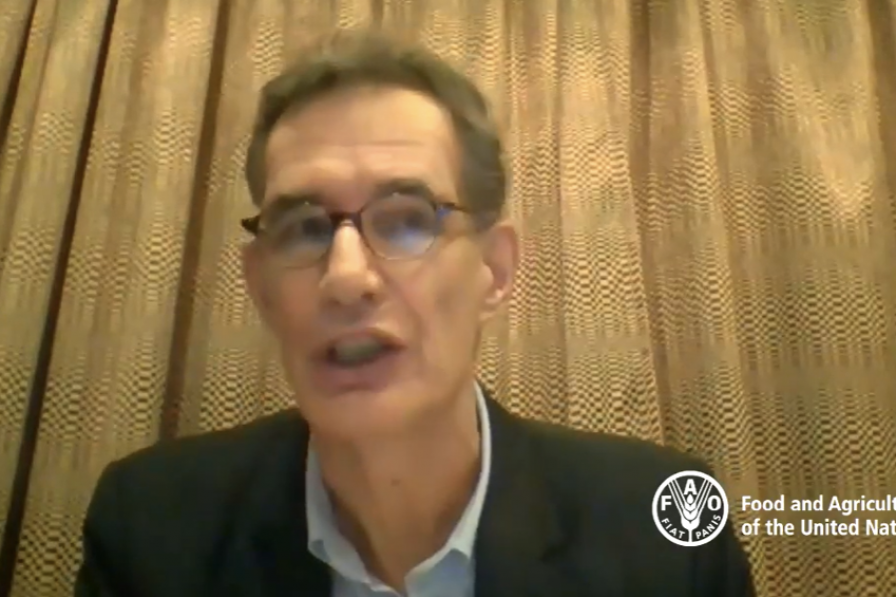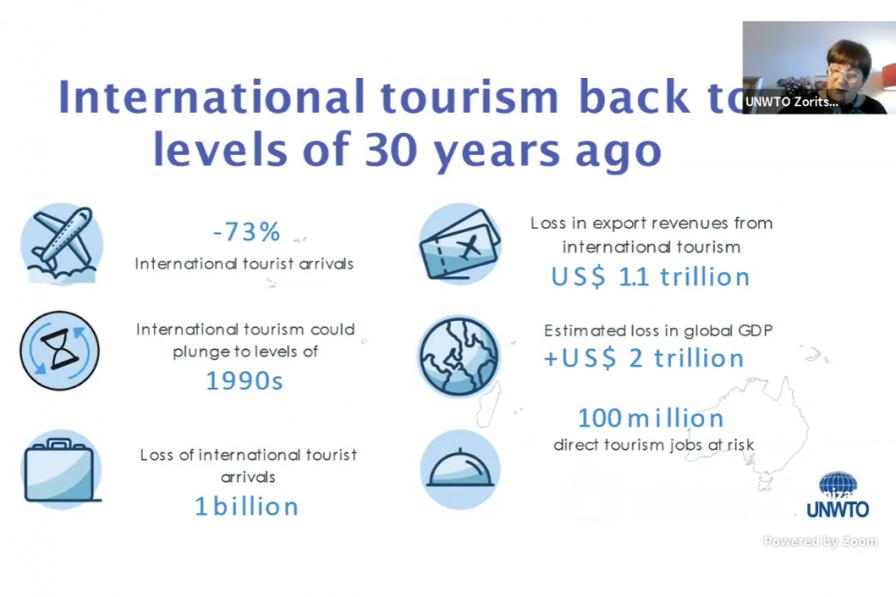This event addressed the global importance of policies supporting food security, poverty reduction, and sustainable food systems in mountains for biodiversity conservation. It also: launched the report, Mountain Farming Systems: Seeds for the Future, on agroecology in mountains for more resilient food systems, published by the Food and Agriculture Organization of the UN (FAO); spotlighted initiatives for innovation and diversification of mountain livelihoods, particularly for women and youth; and explored innovative partnerships for achieving the Sustainable Development Goals (SDGs) and green recovery from the COVID-19 crisis in mountains. It was organized by the Permanent Mission of the Kyrgyz Republic to the UN, the Government of the Kyrgyz Republic, and the Mountain Partnership.
Mette Wilkie, FAO and member of the Mountain Partnership Steering Committee, moderated the event.
Mirgul Moldoisaeva, Permanent Representative of the Kyrgyz Republic to the UN, made an opening statement, noting the COVID-19 pandemic has had a significant impact on communities dependent on tourism and agriculture, undermining decades of development, particularly in mountainous regions, one of the most fragile and vulnerable ecosystems. She called for continuing international dialogue to find practical solutions for their recovery from the pandemic, calling sustainable mountain development a global priority. She noted her country’s contributions to international efforts, including the founding of the Group of Friends of Mountain Countries in 2019 and introducing the 2020 UN General Assembly Resolution titled “Nature Knows No Borders.”
Wilkie noted that, in 2017, half the population in mountainous areas faced food insecurity, which has been compounded by climate change, land degradation, and COVID-19. She said building back better requires rethinking economic growth, with responsible production and consumption patterns.
Elisenda Vives Balmaña, Permanent Representative of Andorra to the UN, said food waste is the third largest contributor to climate change, noting that avoiding food waste is common practice in mountainous regions. She described Andorra’s new legislation on the circular economy, including strategies to: prevent food loss including in businesses, restaurants, school canteens, and households; add avoiding food waste to school curricula; and maintain the tradition of quality livestock, orchard produce, and artisanal products oriented towards best production practices and the preservation of biodiversity, the landscape, and rich traditions.
Amrit Bahadur Rai, Permanent Representative of Nepal to the UN, called mountains the Nepalese identity, noting Nepal’s fostering of multistakeholder dialogue on regional matters of significance. He said remoteness is a barrier to development but not a shield from COVID-19. He noted costs and lack of infrastructure as obstacles to health, education, and access to food. He called for: enhancing connectivity and bolstering tourism; entrepreneurship and private sector activity to invigorate the mountain sector; and investment in education to empower women and inspire youth not to migrate.
Andrea Macchioni, Ministry of Foreign Affairs, Italy, and Chair, Mountain Partnership Steering Committee, said in some areas, fragile mountain economies have almost collapsed due to COVID-19. He highlighted a Mountain Partnership Products Initiative to brand and promote products by small-scale producers in mountain areas that preserve traditional techniques. He announced Italy’s hosting of the Pre-Summit of the UN Food Systems Summit in Rome, with a parallel Mountain Partnership session on food systems for sustainable development in mountains.
François Pythoud, Federal Office for Agriculture, Switzerland, noting that mountains provide key ecosystem services, including freshwater, food, medicine, and energy, officially launched the FAO publication, Mountain Farming Systems: Seeds for the Future. He underscored its messages, including that:
- combining traditional farming practices with innovation and research is key for transforming food systems in mountains;
- shorter and more equitable value chains, with improved marketing and labelling, can strengthen mountain economies; and
- mountain populations require inclusion in development policies, and more resources, to make mountain farming and food systems strong pathways for change.
Barney Dickson, UN Environment Programme (UNEP), said the challenges faced in mountainous regions include geographic isolation, with significant degradation of ecosystems in recent decades exacerbated by climate change and the loss of ecosystem services. Noting that mountains encompass 30% of key areas of biodiversity, entirely or partly, and fulfill 20-50% of the freshwater needs of the global population, he reiterated the need for international collaboration on restoration and highlighted the launch of the UN Decade on Ecosystem Restoration in June 2021.
Anita Paul, Founder, Pan Himalayan Grassroots Development Foundation, stated that households headed by women farmers have the highest food security and resilience but still have no access to inputs, credit, training, or land rights in some areas. She called for, inter alia: making mountain women’s voices heard for suitable policy advocacy; fair trade business practices, equal pay policies, and value chains that promote gender-inclusive entrepreneurship; private sector partnerships sensitive to fair trade, equity, and agro-ecology; and sustainable, diverse local food systems rather than corporatization of agriculture.
Yoko Watanabe, UN Development Programme (UNDP), detailed the UNDP-GEF Small Grants Programme/Mountain Partnership/Slow Food International initiative on “Enhancing agri-food value chains to increase resilience of mountain communities,” to improve local economies. She stressed its aims of supporting social and cultural practices, women producers, and capacity building, increasing environmental sustainability, and building synergies among producers, to contribute to the SDGs and a green recovery.
On tourism, Wilkie noted that mountain tourism comprises 15% of global tourism but has been hard hit. Zoritsa Urosevic, UN World Tourism Organisation (UNWTO), then reported negative statistics regarding the global tourism situation in 2021, due to COVID-19 and restrictive measures to fight it. She gave recommendations for bolstering tourism, including: empowering local communities; investing in destination management; and using green growth models for success and sustainability. She described the UNWTO’s Best Tourism Villages Pilot Initiative to provide capacity to enhance communities in rural and mountain areas.
Participants then viewed a video on a collaboration between Kyrgyz women and the designer, Stella Jean, that combines traditional knowledge with innovation and women’s empowerment.
In ensuing discussion, participants discussed increasing science-based action to support local communities, considered how to position tradition within science-based biodiversity conservation and food systems, and noted the strong influences of culture on food choices. One participant noted evidence showing links between traditional culture and science-based innovations that improve livelihoods. Urosevic noted World Bank work showing investment in green tourism returns six times the value of the investment.
In closing remarks, Moldoisaeva said solidarity and cooperation among member States, international organizations, and civil society are more critical than ever to achieve a sustainable recovery under UN leadership and promised her country’s continuing support for discussion on mountain issues.
Selected Photos

Mirgul Moldoisaeva, Permanent Representative of the Kyrgyz Republic to the UN, gives her opening statement.
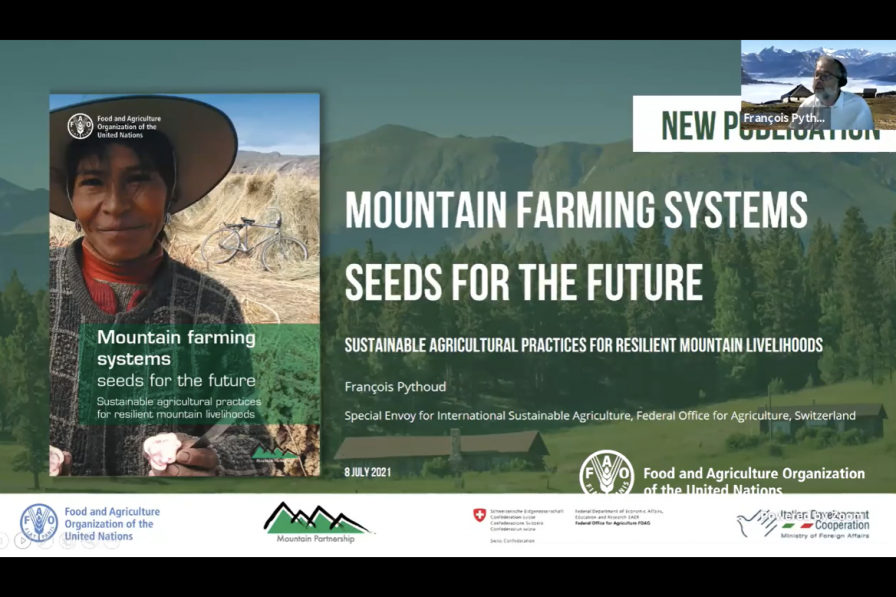
François Pythoud, Federal Office for Agriculture, Switzerland, presents the new FAO publication, “Mountain Farming Systems- Seeds for the Future".
